About Publications Library Archives
heritagepost.org

Preserving Revolutionary & Civil War History

Preserving Revolutionary & Civil War History
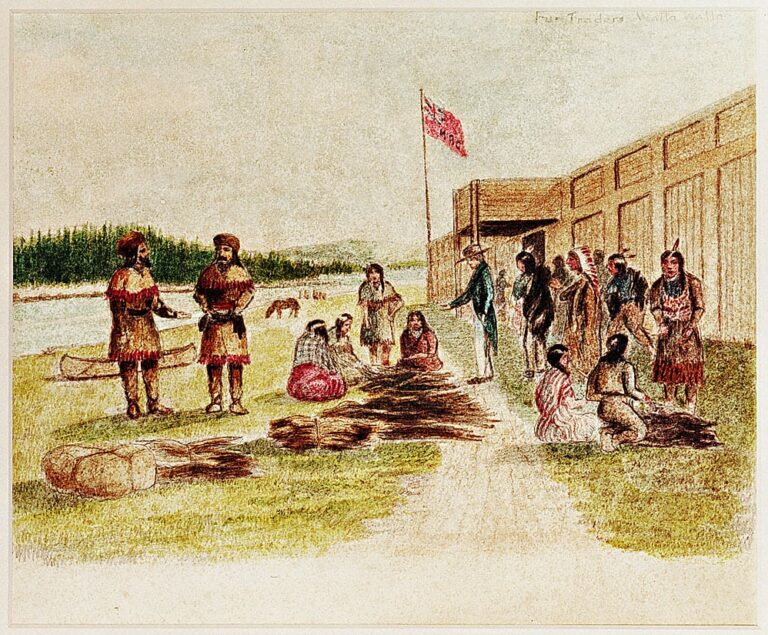
Date:1774 Annotation: The Continental Congress in 1774 made an address to the Inhabitants of Quebec. This address encouraged inhabitants to resist English threats that went against their freedom. It wasn’t taken in good favor as the people of Quebec already knew of their rights and did not need an explanation. They refused to participate. Document: An Appeal…
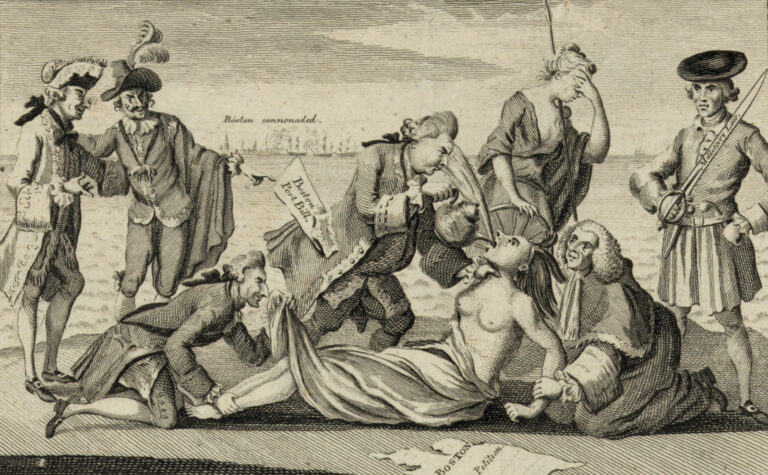
Date:1774 Annotation: The Administration of Justice Act of 1774 Document: An act for the impartial administration of justice in the cases of persons questioned for any acts done by them in the execution of the law, or for the suppression of riots and tumults, in the province of the Massachuset’s Bay, in New England. WHEREAS in his…
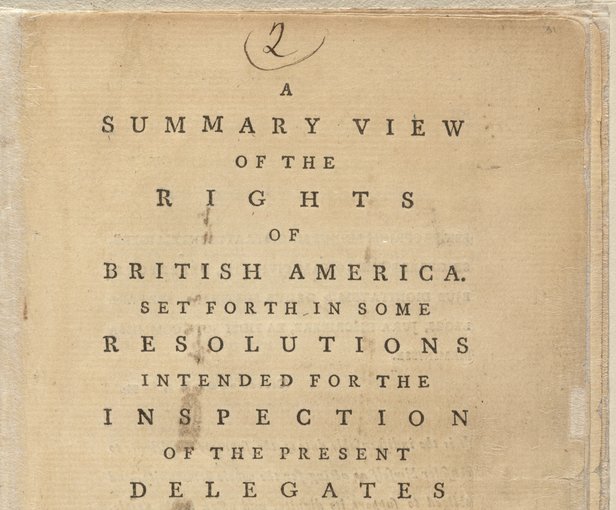
Author: Thomas Jefferson Date:1774 Annotation: Two years before the Declaration of Independence, Thomas Jefferson (1743-1826), then 31, distributed an essay to the delegates at the first Continental Congress in which he outlined grievances against the British government. At the time, this statement was considered too radical by most colonial leaders. In this document, Jefferson…
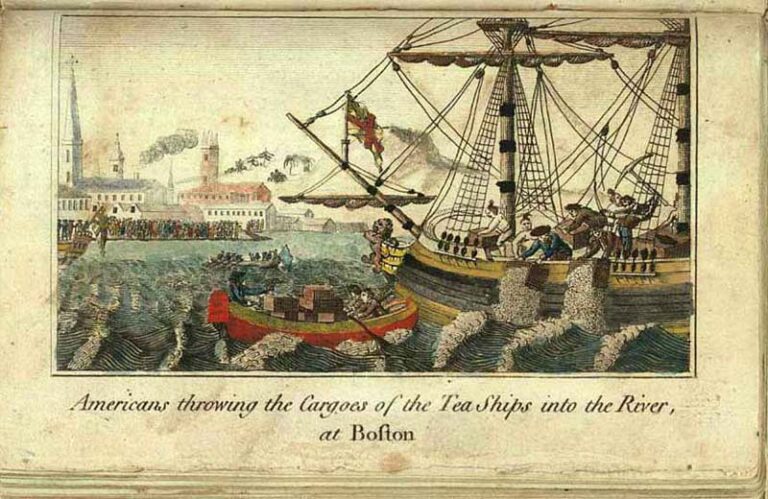
Author: John Easson Date:1773 Annotation: A Bostonian named John Andrews (1764-1845) offered the following account of the Tea Party. “A general muster was assembled, from this and all ye neighbouring towns, to the number of five or six thousand, at 10 o’clock Thursday morning in the Old South Meeting house, where they pass’d a…
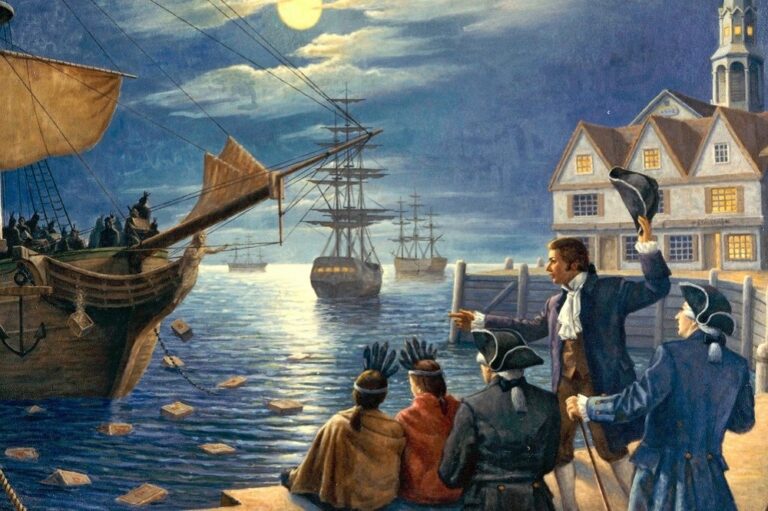
Author: John Adams Date:1773 Annotation: The Townshend duties were a dismal failure. Only 21,000 pound sterling in new duties were collected, while sales of British goods to the colonies fell by more than 700,000 pounds. In 1770, Parliament repealed all the Townshend duties except one, a duty on tea, to symbolize Parliament’s right to…
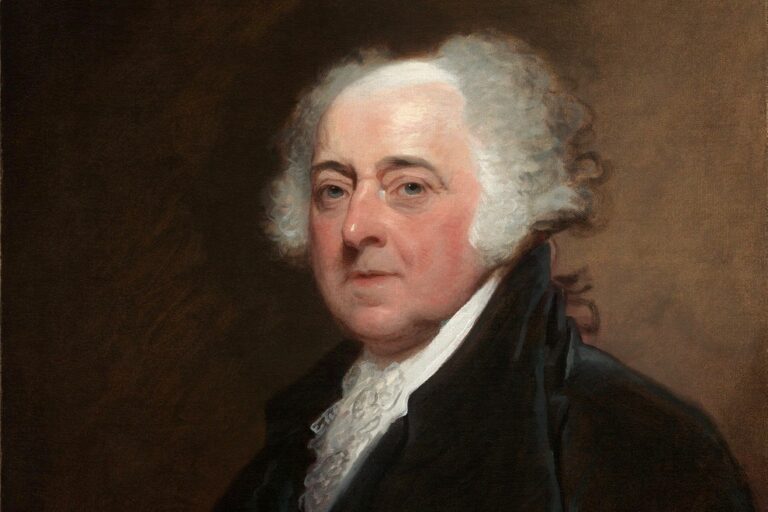
Author: John Adams Date:1773 Annotation: In this letter, John Adams (1735-1826) describes the escalating tensions in Massachusetts during the winter and early spring of 1773, and the mounting opposition to Governor Thomas Hutchinson. Two months after this letter was written, Samuel Adams read a private letter of Hutchinson’s before a secret session of the…
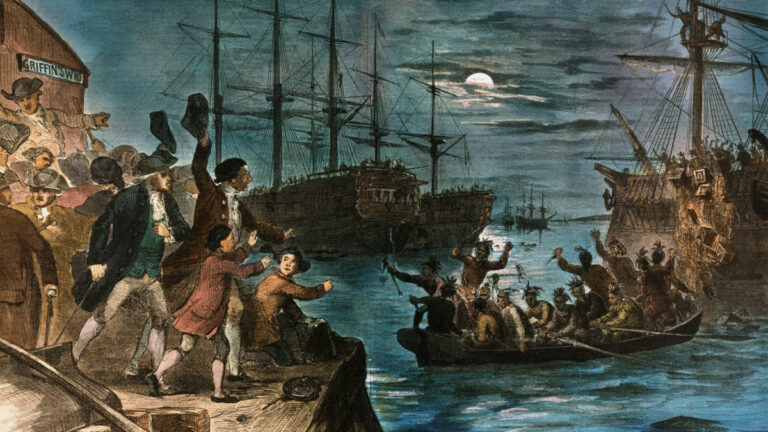
Date:1773 Annotation: Parliament passed the Tea Act that authorized the East India Company to bypass American wholesalers and sell tea directly to American distributors. Cutting out the wholesalers’ profit would make English tea cheaper than tea smuggled in from Holland. Colonists in Boston, disguised as Indians, boarded three vessels and dumped 342 canisters of British tea…
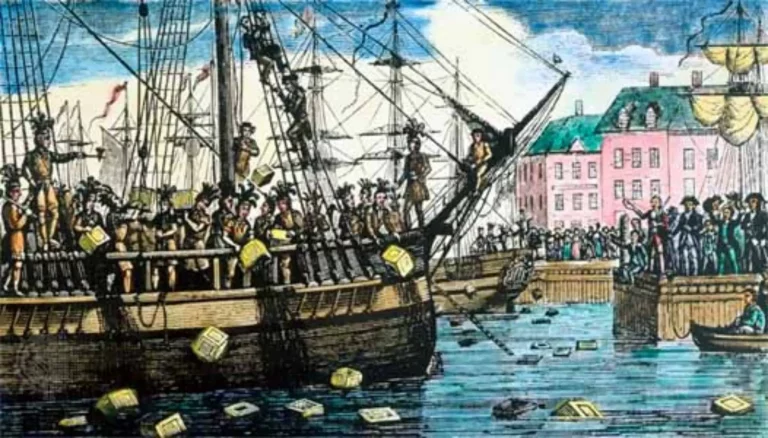
Author: George Robert Twelve Hewes Date:1773 Annotation: George Robert Twelve Hewes, a Boston shoemaker who later fought in the Revolution as a common soldier and sailor, was present at the Boston Massacre and served as a leader in the Boston tea party. Document: The tea destroyed was contained in three ships, lying near each other at…

Author: Samuel Adams Date:1772 Annotation: As one of the chief organizers of protests against the imperial policies adopted by Britain after the Seven Years War, Samuel Adams (1722-1803) was, in Thomas Jefferson’s words, “truly the man of the Revolution.” A founder of the Sons of Liberty, the Boston-born, Harvard-educated Adams was also a key…
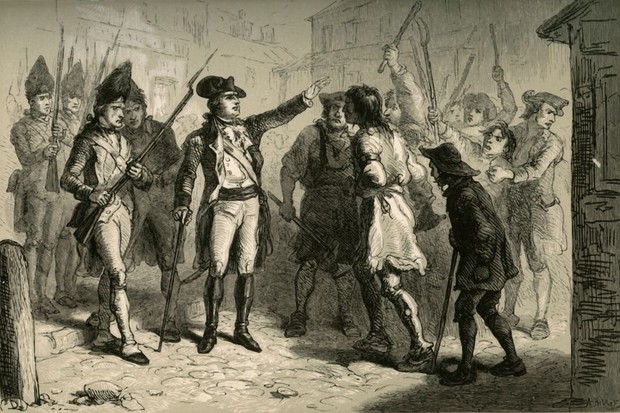
Author: Richard H. Lee Date:1771 Annotation: Even as tension between the colonies and Britain was rising, disputes among colonists continued. In western North Carolina, many farmers, known as Regulators, rose up against wealthy lawyers and merchants, who charged excessive fees for legal services and manipulated debt laws. The royal governor needed more than a…